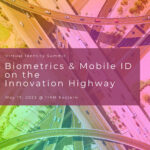Colorado has officially become the third state to roll out support for Apple’s Mobile Driver’s License.

The news comes by way of the Colorado Department of Revenue, the DMV, and the TSA. The organizations revealed this week that Coloradans can add virtual versions of their driver’s license or state ID to their iPhone or Apple Watch. The agency also revealed that Apple’s mobile IDs can be used as official identity documents at the Denver International Airport.
Apple’s mobile ID rollout has been slow going since the virtual driver’s license concept was first unveiled in June of 2021. The solution didn’t go live until March of this year, when Arizonians got access through a launch that also enabled them to use the MDL as official ID at the Phoenix Sky Harbor International Airport.
Maryland came next, in May. And while that launch enabled the use of mobile ID at the Baltimore-Washington International Marshall and Reagan National airports, interested travelers also had to be registered with the TSA PreCheck expedited screening program in order to do so.
Apple has taken pains to design a secure onboarding process supported by biometrics, document capture, and active liveness detection. Enrolment requires users to upload images of their identity documents along with a selfie, which are then biometrically matched. The user is also asked to perform certain head movements to protect against presentation attacks.
At the airport, the mobile ID system helps to protect privacy. It isn’t actually necessary for a traveler to show their virtual ID to a TSA agent; instead, the traveler just taps their iPhone or Apple Watch on an IDEMIA-made wireless reader, which confirms the necessary identity data. And that information won’t be shared without a face or fingerprint scan to unlock it.
Despite the TSA support, Colorado authorities are still insisting that Apple’s mobile ID is not a replacement for their physical driver’s license or ID cards, but rather a complement to them. They still need to carry physical ID in order to prove their identity when dealing with state agents.
In any case, the mobile ID’s Colorado launch illustrates the ongoing advancement of mobile ID technology across the US and the world, a trend in which Apple is just one player, albeit a major one. A separate mobile ID solution developed by IDEMIA, for example, was accepted as proof of identity at polling stations in Mississippi in the recent midterm elections.
Sources: AppleInsider, NFCW, 9News
–
(Originally posted on Mobile ID World)







Follow Us